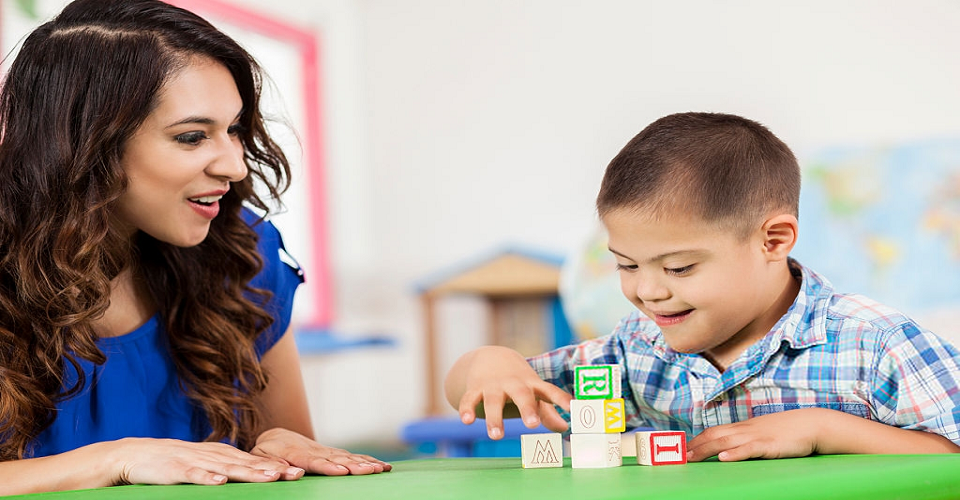A Complete Enlightening Guide To ADHD Awareness
8th May 2019

Being a teaching professional, you would probably know your learners pretty well and situations like the ones who always answer first and the ones who couldn't! This is the most common scenario in almost all the classrooms and in each and every classroom has the above-mentioned learners. As a teacher, you know well about the brainpower of your fellow students but somehow they just cannot be able to focus on the lessons which you are working hard on to deliver to your students. Well, ADHD’s symptoms can be frustrating and dealing with them is not at all an easy job and this is why the ADHD courses for teachers are significant nowadays because of the required awareness that they pertain.
What is ADHD?
Attention Deficit/Hyperactivity Disorder (ADHD) is neurodevelopmental anarchy which affects both the children and the adults. Individuals with ADHD face the difficulties in maintaining attention, how to organize the brain for a particular work by affecting the working memory. It also affects behaviour and speech as well as stirring their social life.
What are the first signs of ADHD?
- Hyper activeness or short attention span
- Inattentiveness
- Impulsive nature
These 3 are the most common and initial signs of Attention Deficit/Hyperactivity Disorder.
What are the common symptoms of ADHD?
Here are the common symptoms of ADHD:
- Impulsiveness or Carelessness
- Facing trouble in multitasking
- Low planning power
- Dis-organizational behavior
- Problems in paying attention
- Bad time management skills
- Short temper
- Problems in following and completing the tasks
- Mood swings
- Restlessness
- Talks unreasonably
- Face issues in staying in his/her seat
- Interrupts on others’ conversations and actions
Well some people with ADHD can have fewer symptoms with their age, but some adults continue to have major symptoms. It’s very important to keep in your mind that not every impulsive child has ADHD, a child is being diagnosed with ADHD only if he/she shows these symptoms frequently.
Can teachers have ADHD?
Yes, not only teachers others can also have the adult ADHD however, this is certainly less in numbers as in most of the cases it is being diagnosed at an early age only!
Is ADHD a psychological disorder?
If we think in a broader sense then it’s NOT a psychological disorder is a huge term. This generally refers to any type of psychological condition that affects a person's behavior, mood or thinking where ADHD is being included.
How can teachers aid kids with ADHD?
After knowing the basics of ADHD, now the question is how can you teach a kid who has Attention Deficit/Hyperactivity Disorder (ADHD)?
The simple answer is with lots of patience, innovativeness, and firmness.
At first, you need to identify the special child and then you need to evaluate him/her. By evaluating, you will come across his/her particular requirements and strengths. If you can know them then to teach them will be easier for you.
The most effective and successful teaching tool for ADHD child is helping him/her with a positive attitude. Dealing with disruptive and obstreperous classroom behavior has been always a challenge for every teaching professionals.
However, with some teaching tactics you can handle these types of situations by encouraging the learning, discipline, and boosting the self-esteem...let's see how:
- Create and establish separate rules and routines for the ADHD learners. Try to state them in different positive terms that convey exactly what you want your students to do. This will aid the students with ADHD to stay on their task.
- Make the use the advanced teaching-learning software and applications for your lesson plans. Technology can help you in delivering a platform to them to develop their learning skills in a better way.
- Complete and appropriate supervision is required in handling a special child. Children with ADHD need more auspices and supervision because of its features. What you can do is you can just aid them by pairing them with other classmates who can remind them of homework and classwork, to team up on a project by involving the classroom aides.
- Let them play, try some new teaching ways through their favorite games. Small small breaks can help children with ADHD in paying attention in a better way. Give different opportunities for physical actions and so on.
- Include parents in your lesson plans so that you can know the child more. Communicate regularly with the parents about the problems and the child’s performance to maintain a track for him/her. Tell them to monitor their child about the completion of classroom works.
- You can use a tape recorder to teach them all the different regular lessons instead of giving them a printed text to learn. This will create an interest in your teaching-learning practice. You can also give different visual reminders.
All the above-mentioned teaching tactics are actually effective and successful in dealing with ADHD learners in a better and effective way and ADHD courses for teachers deliberately trying to build awareness about it.
Can ADHD get worse if untreated or ignored?
The answer is YES, if it is not being treated in time then it will affect the learner negatively. Shockingly, different researches show that ignored ADHD is one of the most extremely damageable disorders to live with.
What should NOT BE DONE to the ADHD child?
- Don't expect that the ADHD child will behave like other children.
- Don’t treat them as a non-compliant child
- Don’t overlook their behavioral needs
- Don’t mix up with punishment and discipline
- Don’t blame the child of being so
- Don’t lose your temper
Kids with Attention Deficit/Hyperactivity Disorder generally require a slightly different way of discipline. With a few simple changes along with proper training, your teaching strategies could give your learners the tools which he/she needs to manage his behavior more adequately.
